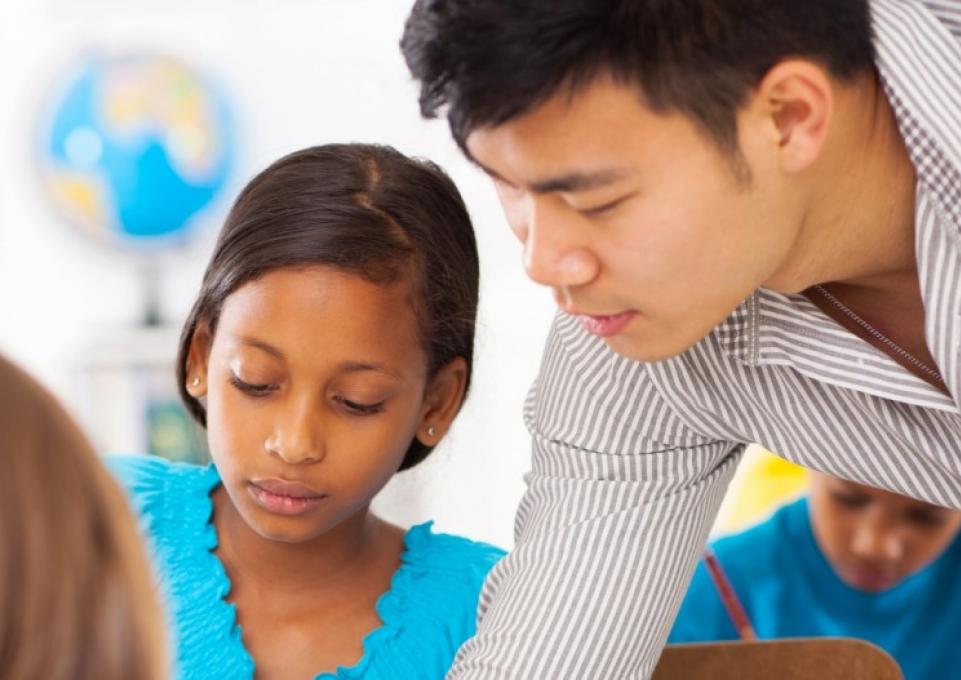
In her position as an educational advocate with the Buffalo Urban League, Buffalo State alumna Gabrielle Mosher is working hands-on with city high school students who are at risk of failing.
Through her involvement with a program set-up by Jevon D. Hunter, Woods-Beals Endowed Chair in Urban Education, Mosher has implemented different ideas to better connect with her students and increase their chances of academic success. That program, the Urban Teacher Collaborative, has put Mosher in touch with like-minded educators and led to a new way of looking at learning.
“We’re using Buffalo as a living curriculum,” she said. “The students are actively engaged.”
Mosher is just one of several Buffalo State alums using the collaborative to provide engaging, important coursework to their students.
“We’re using social justice-based advocacy work to change the narrative,” she said.
Back in 2015, Hunter noticed a gap between his coursework and what his students were seeing in the classroom.
“In a lot of the education courses that I teach, I emphasize social justice, community involvement, and action research,” he said. “Many of my students were asking for models of this work. For them, and their experiences, they just hadn’t seen that. They hadn’t seen a teacher who was committed to doing social justice work.”
Because of that gap, he started the Urban Teacher Collaborative as a way to bring models of the work to teachers in the Western New York area.
The collaborative has four guiding principles, Hunter said.
“The first is that we use Buffalo and Western New York as a living/lived curriculum,” he said. “How can we use what’s going on in the area as a lens through which to teach content?”
The second principle involves having a “social justice orientation,” Hunter said.
“We’re not going to teach concepts just for the sake of teaching them,” he said. “What we wanted to do was teach about social injustices and give our children the tools to challenge them and to create something in its place.”
Thirdly, Hunter said, the idea was to have the teachers become “action researchers.”
“We wanted them to study their classroom practices as a way of improving the lives of students,” he said. “We also wanted our students to become researchers of their own social realities.”
The fourth guiding principle is to use technology in inventive ways, Hunter said.
The group meets once a month, on Saturdays, and includes a variety of educators, some who traveled to the Bahamas this fall to present their work at the International Conference on Urban Education (ICUE).
Nicole Ball, a Buffalo State alumna and literary specialist at Cheektowaga Middle School who presented at the ICUE conference, called the collaboration a “game-changer.”
“It enables us to grow from each other, no matter what content area we’re teaching,” she said. “It’s just so powerful to have everyone’s expertise and bring these effective practices into one place. It totally changed the direction of my career and made me feel like transformation was possible here.”
Ball said she didn’t realize how many like-minded teachers there were in the area until she became involved with the collaborative.
“It may have kept me in the field entirely,” she said. “It’s powerful when you can do this work in your classroom, but nothing is as powerful as working together with so many dedicated teachers who are seeing good results and seeing kids achieve.”
Enadrienne Dubose, also an alum and assistant principal at Bilingual Center No. 33 in the Buffalo Public School District, also presented at the ICUE conference. She uses the concepts she’s picked up through the collaborative to encourage teachers to do the work in their classrooms.
“I work a lot with the parents and the kids, just talking to them about situations or things that I’ve learned,” she said.
Mosher said the collaborative has also helped her with professional development.
“My perspective is important for other teachers,” she said.
